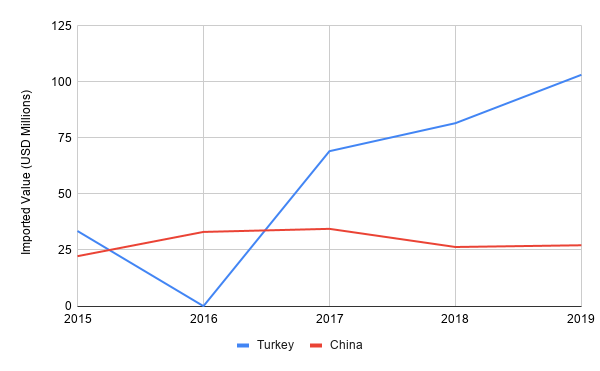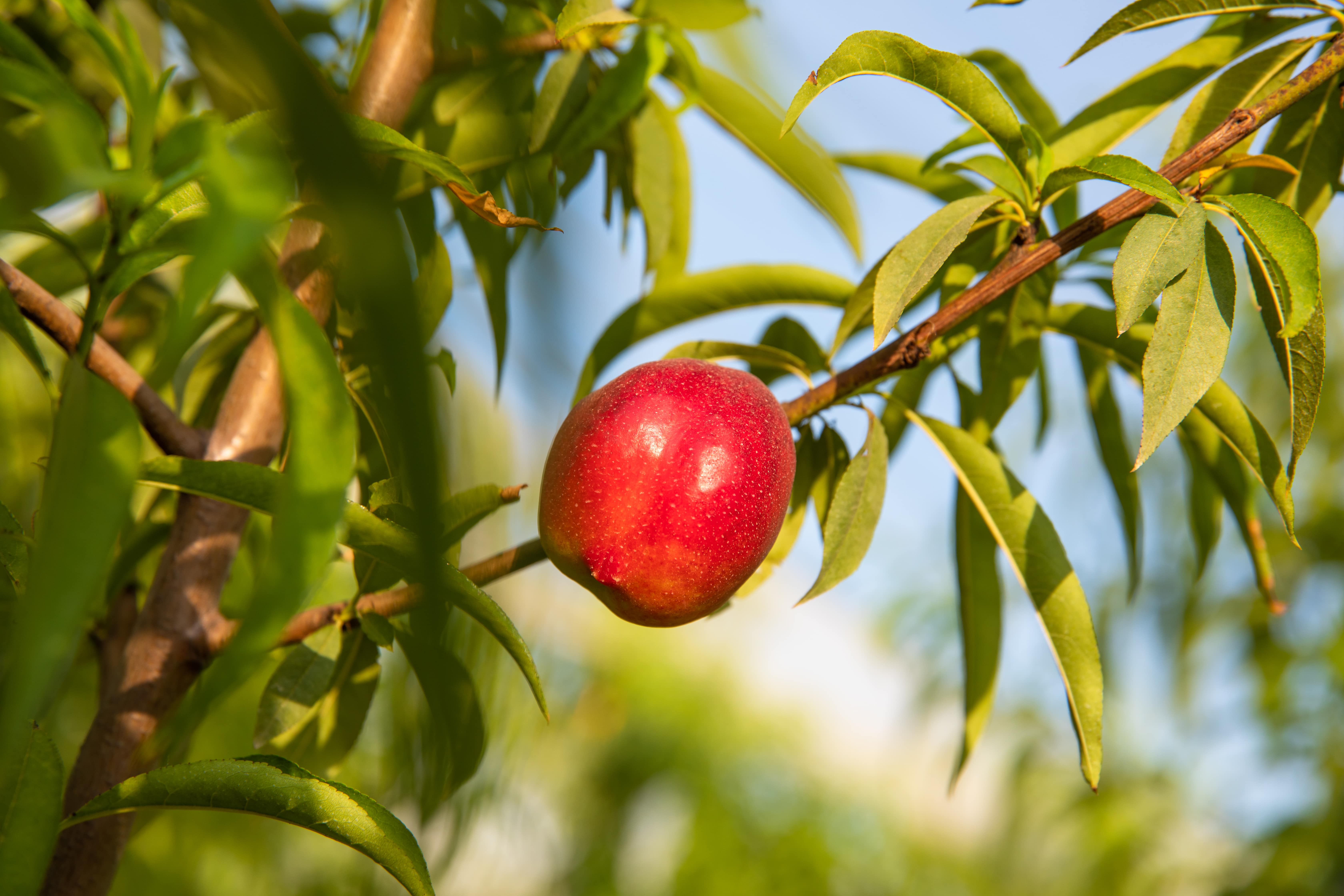Turkey Expands in the Russian Peach and Nectarine Market in Absence of China
Ever since Russia imposeda ban on Chinese stonefruit imports over food safety concerns last year, Turkey has been given more leverage into the Russian market, which imported roughly USD 214 million worth of fresh peaches and nectarines in 2019 from Turkey.
With Russia’s food import embargo in 2014, imports decreased by more than half the following year, which was then compensated by an increase in Turkish and Chinese imports. The dynamics within the stonefruit sector is about to change, however, as Turkey, which holds nearly half of the shares in Russia’s peach and nectarine imports, along with other rising countries, will increase their presence even more.
Chinese Stonefruits on the Decline
China has been a steady supplier for stonefruits to Russia, for which in 2008 its export value was recorded at USD 10 million, ahead of Turkey’s export value of USD 7.4 million. While Turkey outpaced China just a few years after, China had still maintained a prominent position in Russia’s stonefruit market. It was for this reason that when the ban came into place in 2019, it came at a blow to many Chinese exporters.
The Russian Federal Service for Veterinary and Phytosanitary Surveillance (Rosselkhoznadzor) reported 48 cases of contamination of foreign organisms in Chinese shipments in 2019, where if transferred, could devastate 30-90% of crop yields. As the ban is yet to be lifted, Chinese exports of peaches and nectarines will be down by one-third in the absence of the Russian market, according to the USDA. Production is not expected to fare well either, which will decrease by roughly 500K tons from MY 2019/20 to a total of 14.5 million tons after heavy snow in April. Instead of being export-heavy, the MY 2020/21 season will be different for China, where forecasts have indicated a more than 40% increase in imports, driven by Chile.
Turkey Increases Market Share in Russia

Source: ITC Trade Map
Turkey Gains More Leverage in Russian Market
Due to favorable climate conditions, the growth of the juice industry, and strong governmental support, the Turkish stonefruit industry has been flourishing. The coronavirus has had minimal impact on the sector, and Turkey has appealed to consumers worldwide for its attractive prices, owing to its low labor costs and high supply.
Turkey’s growth in export value to Russia recorded a staggering 288% over 2015-19, while quantity exported witnessed a 32% increase. For the MY 2020/21 season, Turkish peach and nectarine exports are expected to reach 140K tons, up by 40K tons from the previous season. In contrast, overall peach and nectarine production has contracted globally in major producing countries such as the United States, the EU, and China, presenting a golden opportunity for Turkey to become a leader in the peach and nectarine industry.

In addition, the EU’s access to the Russian market has also been blocked until the end of this year. Top exporter Spain, along with Italy and France, has been reducing acreages for peaches and nectarines due to an accumulating surplus and looking to opt for tree nuts instead.
It will not be an uncommon sight to see new players emerge in the peach and nectarine industry as well, depending on their relationship with Russia. Egypt, for example, which has maintained solid relations with Russia in fruit exports, has increased peach and nectarine exports by 186% in terms of import value during 2018-19.
Sources
- ITC Trade Map. HS: 080930 Fresh peaches, incl. nectarines.
- USDA. Fresh Peach/Nectarine 2020/21 Highlights.
- RBC. "Russia will suspend the import of fruits from China." Translated from Russian.





